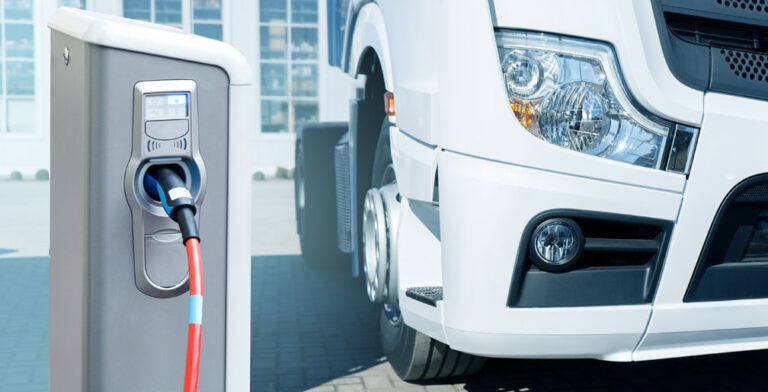WASHINGTON — The U.S. Department of Energy (DOE) on Monday released a study showing that by 2030, nearly half of medium-and heavy-duty trucks will be cheaper to buy, operate and maintain as zero emissions vehicles than traditional diesel-powered combustion engine vehicles.
The announcement dovetails with the Biden administration’s Monday proposal for stronger pollution regulations for new tractor-trailer rigs that would clean up smoky diesel engines and encourage new technologies during the next two decades. The White House has also issued a fact sheet on the initiative.
Published by the DOE’s National Renewable Energy Laboratory, the study finds that continued improvements with zero emission vehicle and fuel technologies will enable clean trucks to become cheaper and more readily available over the next decade.
A DOE news release stated that “increased use of battery electric vehicles (BEVs) and fuel cell electric vehicles (FCEVs) within the trucking industry will support the decarbonization of America’s transportation sector and advance President Biden’s goals to accelerate the adoption of electric vehicles, address the climate crisis, and bolster domestic manufacturing.”
U.S. Secretary of Energy Jennifer M. Granholm said that the DOE “is providing a roadmap for trucking companies to make the switch from diesel to electric that will help them cut costs and pollution for their customers, while combatting climate change.’
“The Biden administration’s comprehensive approach is working to make clean transportation a reality—by reducing exposure to volatile fuel prices, investing in American manufacturing and creating a national charging network to support more electric vehicles on the road.”
Medium- and heavy-duty vehicles account for less than 5% of the vehicles on the road but produce over 20% of the emissions from the transportation sector, which currently accounts for more than one-third of U.S. green-house gas emissions, according to the DOE.
Key findings of the report suggest that cost competitiveness of zero-emissions medium- and heavy-duty vehicles can largely be achieved by 2035.
Specifically, the report finds that the costs of zero-emission electric medium-and heavy-duty trucks will be the same, or lower, than those of diesel trucks.
Battery electric trucks are expected to become cost-competitive for smaller trucks before 2030 while heavy trucks with less than 500-miles of range are projected to be cost-competitive by 2035.
Due to advancements for fuel cells and clean hydrogen production, hydrogen fuel cell electric vehicles are expected to become cost-competitive for long-haul heavy-duty trucks with greater than 500-mile range by 2035.
“This report follows the release of DOE’s sweeping supply chain report that lays out dozens of critical strategies to build a secure, resilient and diverse domestic energy sector industrial base,” the DOE news release stated.
“Supply chain improvements lead to more affordable batteries for all applications, and the Bipartisan Infrastructure Law is investing more than $7 billion into the supply chain for batteries, over the next five years.”
The law also invests $7.5 billion to expand the nation’s electric vehicle charging network up to 500,000 charging stations.
Recently released guidance to states includes eligibility to support charging infrastructure for trucks. In February, DOE released two notices of intent for electric drive vehicle battery recycling and second life applications, as well as battery materials processing and battery manufacturing.
DOE is facilitating the advancement of the electrification of medium-and heavy-duty vehicles.
The 21st Century Truck Partnership, a long-standing collaboration among truck manufacturers, major suppliers and interagency partners, recently launched a new electrification technical team focused on removing barriers to wide-scale truck electrification.
The department is working directly with industry through SuperTruck 3 program and the Million Mile Fuel Cell Truck (M2FCT) consortium.
SuperTruck 3 aims to reduce emissions of freight transportation through electrification and the M2FCT consortium aims to enable more than a million miles of heavy-duty truck use for next generation fuel cells. DOE is also working to ensure an effective integration of these vehicles in the grid.
The Trucker News Staff produces engaging content for not only TheTrucker.com, but also The Trucker Newspaper, which has been serving the trucking industry for more than 30 years. With a focus on drivers, the Trucker News Staff aims to provide relevant, objective content pertaining to the trucking segment of the transportation industry. The Trucker News Staff is based in Little Rock, Arkansas.











